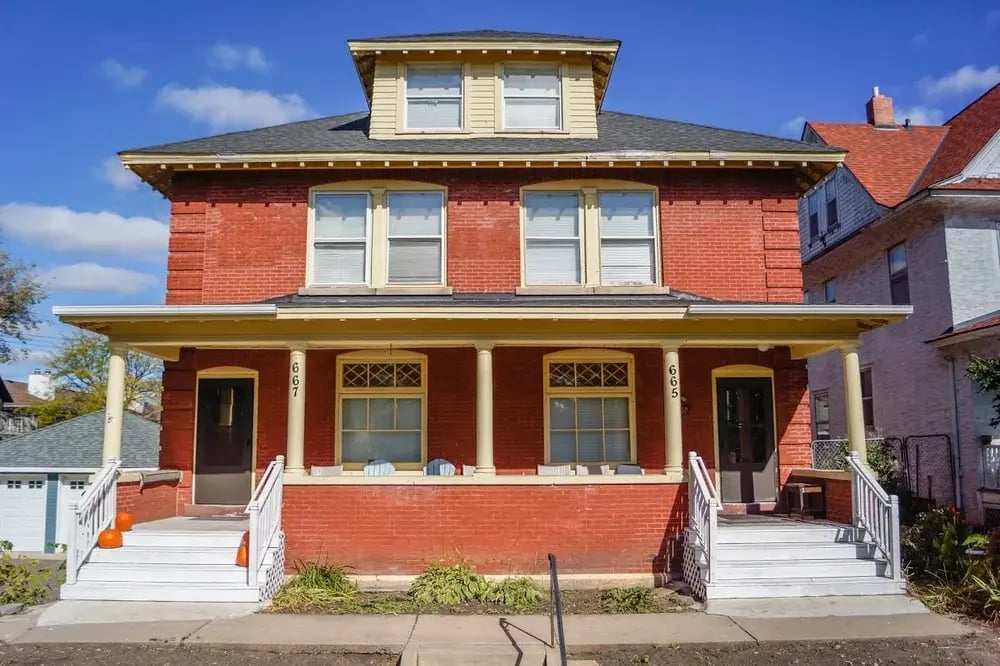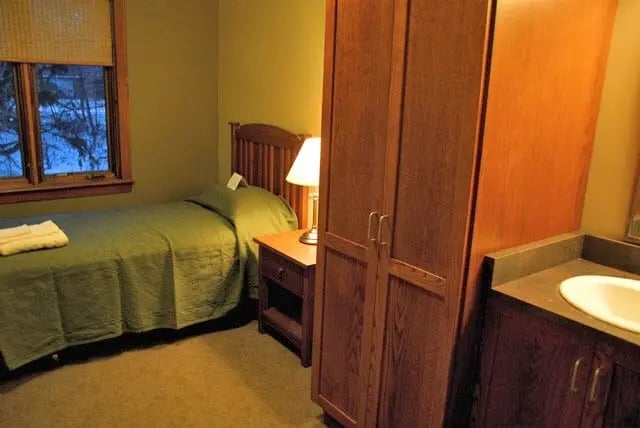Facing drug or alcohol addiction (or both!) can be overwhelming, and millions around the world experience that. But seeking rehab is a vital step towards reclaiming your life. It's an acknowledgment that you want to break free from the cycle of substance abuse and embark on a path to recovery. During this journey, you may ask yourself, 'What happens in rehab?' Let me shed some light on this for you.
Rehabilitation programs are designed to provide comprehensive support and guidance as individuals navigate their way toward sobriety. At The Retreat here in Minnesota, we recognize that each person has their own unique story and needs when it comes to overcoming addiction. Be with me as I help you understand why and how rehab works for your improvement and well-being regarding this crisis matter.
What is Drug and Alcohol Rehab?
A drug and alcohol rehab center is a safe haven designed for individuals who wish to break free from addiction and achieve lasting sobriety. Individuals can develop healthier coping mechanisms, identify their triggers, and manage cravings in these centers through customized care and evidence-based therapies.
Clients in a residential setting receive round-the-clock monitoring from experienced professionals who provide 24/7 care. As part of this program, professionals guide individuals through various therapeutic interventions tailored to their individual needs in order to equip them with the skills to resist temptation in the long run.
Rehab centers go beyond just initial treatment. They emphasize relapse prevention strategies along with aftercare planning for smooth transitions back home. Aftercare often includes ongoing therapy sessions combined with regular attendance at support group meetings like Alcoholics Anonymous (AA). This continued connection to an addiction support network helps individuals stay motivated as they continue on their recovery journey.
Types of Rehab Centers
When considering rehab options, it's important to know that there are different types available for you to choose from. Finding the right fit depends on your unique circumstances and needs. Luckily, along with input from professionals at the center, you don't have to make this decision alone.
- Long-term residential: These inpatient programs provide 24-hour care in a non-hospital residential setting, typically lasting between six and twelve months. It focuses not only on therapy sessions but also promotes socialization among residents and staff members through educational programs covering mental health, addiction management, nutrition education, and more.
- Short-term residential: Originally designed for alcohol use disorder recovery using a 12-step approach, these programs now cater to other substance use disorders as well. Generally three-to-six-week in duration, this type is followed by outpatient therapy combined with support groups like Alcoholics Anonymous or Narcotics Anonymous aiming towards relapse prevention.
- Outpatient: If staying at home while seeking help is more suitable for your situation, opt-in program centers allow flexibility. Appointments can be scheduled regularly throughout the week where one attends similar therapeutic sessions (such as individualized counseling) as provided by residential rehabs without living onsite.

How Do I Know When I Should Start Rehab?
If you or a loved one is caught in the grip of substance addiction, figuring out when to start rehab can be difficult. However, there are some signs to look out for that indicate intervention is necessary.
One red flag is needing increasing amounts of a substance just to achieve the same effects as before. This tolerance buildup could lead down a dangerous path if left unchecked.
If drug use begins interfering with relationships, work responsibilities, or everyday activities - it's time to take action. Another warning sign may be hoarding and obsessing over maintaining a supply of the substance.
Remember, every person's journey towards recovery looks different, so don't delay seeking help- reach out today!
What Happens in Rehab Before Starting the Journey
Before embarking on their recovery journey, individuals go through a few essential steps to ensure that they receive personalized care. Let's take a closer look at what happens before starting rehab:
1. Initial Consultation
Prospective clients meet with addiction specialists for an initial consultation, where they openly discuss their substance abuse history and any concerns or questions they may have.
2. Psychological Assessment
A comprehensive psychological assessment is conducted to evaluate mental health conditions such as anxiety or depression that may coexist with addiction. This assessment provides valuable insights into underlying factors contributing to substance use disorders.
3. Physical Assessment
A thorough physical examination helps medical professionals understand the individual's overall health status and address any immediate healthcare needs related to withdrawal symptoms or other medical complications arising from prolonged drug use.
4. Custom Treatment Plan
Based on these consultations and assessments, a custom plan for recovery is developed specifically tailored to each participant's unique circumstances. It's needed to be ensured that all aspects of their physical and emotional well-being are considered during rehabilitation.

A Typical Day in Drug or Alcohol Rehab Facility
In rehab, structure and routine are key components of your recovery journey. By providing a consistent schedule, they aim to minimize decision-making stress and create an environment focused on healing. So what does a typical day look like within the walls of a rehab facility? Let me take you through some examples to give you an idea. Keep in mind that every center has its own unique approach tailored to your addiction and individual needs.
- Mornings
Your day in rehab will typically begin with a set wake-up time. Dedicated nurses ensure that those with prescribed medications receive them as needed to manage withdrawal symptoms or address any existing mental health conditions.
After medication administration, it's time for breakfast - a nutritious meal designed to fuel your body and mind for the day ahead. Your first session of the day, group therapy, is a valuable opportunity to connect with others who understand what you're going through and learn from their experiences.
During these sessions, there may be moments when you are encouraged to take breaks for reflection, journaling activities, or practicing new skills discussed in the therapy session itself. These pauses provide vital breathing room for self-reflection and consolidation of key insights gained during discussions.
- Afternoons
After a satisfying lunch, the afternoon schedule in rehab continues with another session tailored to your needs. It might involve individual therapy, where you have the opportunity to dive deeper into personal struggles and receive one-on-one guidance from a therapist.
During your free time, you may have options like attending fitness sessions at an on-site gym. Physical exercise not only helps manage mood swings during withdrawal but also promotes overall well-being in recovery.
Alternatively, there could be educational courses focusing on mental health, addiction knowledge, or nutrition. Understanding these aspects can play a crucial role in your journey toward long-term sobriety. Plus, adopting balanced nutrition helps manage stress levels and even curb cravings that arise during withdrawal.
- Evenings
As evening sets in at rehab, you'll enjoy a nourishing dinner with fellow residents. Afterward, the day doesn't end just yet. It might conclude with another impactful group session that allows you to reflect on your progress and emotions throughout the day.
Then comes personal time as you prepare for a restful night's sleep, the key to rejuvenation and recovery. In most cases, rehab centers have designated "lights out" times when it's encouraged to wind down and get some much-needed shut-eye.
Remember that these schedules may vary depending on the specific rehab center's approach but maintaining the structure during evenings can be conducive to overall healing.
Drug and Alcohol Rehab Options
One popular option in alcohol and drug rehab is the renowned 12-step program. This approach, pioneered by organizations like Alcoholics Anonymous (AA) or Narcotics Anonymous (NA), provides individuals with a structured framework for their recovery journey.
The 12 steps encourage individuals to acknowledge powerlessness over their addiction, develop self-awareness, make amends for past actions, and actively seek spiritual growth. Through attending regular support group meetings centered around these steps, participants find fellowship among peers who understand what they're going through.
In addition to group therapy, participation in programs like AA or NA offers many benefits. Like, hearing inspiring stories of others' success in overcoming substance abuse which potentially serves as motivation. This also provides an opportunity to share personal experiences without fear of judgment.
Research has shown that involvement in mutual help groups can significantly improve abstinence rates and overall well-being during recovery. Individualized therapy sessions are another key component of rehabilitation programs. Here people work one-on-one with compassionate professionals who employ evidence-based therapies considering personalized goals. That helps them discover root causes contributing to addiction and works better when put under a care plan.

Benefits of Rehab
Rehabilitation for drug and alcohol addiction offers a multitude of benefits. It provides individuals with support, guidance, and resources to overcome their dependencies. Through personalized care and evidence-based therapies at The Retreat in Minnesota, you can rediscover your true self while building a foundation for lasting recovery. Check out why rehab is a good option-
- Improved Physical Health
When struggling with addiction, physical health often takes a backseat. Substance use can lead to various health issues, such as heart disease, liver damage, and an increased risk of cancer. Additionally, individuals may neglect their overall well-being in pursuit of acquiring and using substances.
In rehab programs that offer detoxification services (detox), you have the opportunity to rid your body of harmful substances. Alongside this process, rehab focuses on teaching you how to prioritize self-care and establish healthier habits. By taking care of your physical health through proper nutrition, exercise routines, and adequate sleep, you set yourself up for a stronger foundation in sobriety.
- Mental Wellness
Taking care of your mental health is a crucial aspect of addiction recovery. Substance abuse often goes hand in hand with underlying mental health issues such as anxiety, depression, or trauma. The Retreat recognizes this by placing great emphasis on addressing and treating co-occurring disorders alongside addiction.
By being part of a comprehensive rehab program, you can begin to understand and manage these underlying issues that may have contributed to your addictive behaviors. By focusing on improving your mental wellness and developing healthy coping mechanisms, you enhance your overall quality of life while building resilience for long-term sobriety.
- Better Relationships
Completing a rehab program plays a vital role in repairing broken relationships. Your commitment to achieving sobriety sends a powerful message to your loved ones - that you are dedicated to making positive changes in your life and leaving behind destructive behaviors.
As you work through the recovery process, loved ones begin witnessing the transformation happening within you. They see firsthand that healing is taking place, instilling hope for healthier connections and trust restoration.
- Healthy Boundaries
In rehab, you'll learn the importance of setting healthy boundaries in your life. Whether it's dealing with a dysfunctional family situation or navigating stress-inducing environments, having clear boundaries is crucial for maintaining sobriety.
At rehab, the programs provide tools and strategies to establish both external and internal boundaries that shield you from triggers and support your recovery journey.
- Better Career Opportunities
When you embrace recovery instead of being caught in active addiction, your mental and physical well-being greatly improves. This is a game-changer when it comes to job performance. Even if addiction causes you to lose a job, entering into rehab gives you an opportunity for a fresh start.
Recovery enables individuals to pursue careers that align with their unique talents and gifts. By committing to sobriety and personal growth at rehab, you gain not only freedom from substance abuse but also open doors toward brighter career prospects.
How Long Is Rehab?
The duration of rehab can vary depending on individual needs and circumstances. While some programs last for 30 days, others may extend up to 90 days or even longer for more severe cases.
Research by the National Institute on Drug Abuse suggests that a minimum of three months is required to significantly reduce drug use and improve the process outcomes. However, it's important to remember that recovery is an ongoing process, and individuals may benefit from extended care beyond their initial rehab stay.
What to Expect After Rehab
After completing a residential or inpatient rehab program, individuals have several options for continued support and maintaining their sobriety journey. One option is outpatient programs that offer flexibility with scheduled therapy sessions while allowing individuals to live at home.
Renewal programs provide ongoing counseling and support services, ensuring a smooth transition into everyday life. Sober living facilities create an environment where people can practice the skills they learned in rehab within a supportive community setting.
Self-help groups like Alcoholics Anonymous (AA) or Narcotics Anonymous (NA) play an essential role after rehab. They provide peer-to-peer support, accountability, and guidance through the challenges of early recovery. The importance of these resources cannot be overstated in sustaining long-term recovery success.
Start Your Recovery Today
The Retreat is a leading alcohol and drug addiction rehab center in Minnesota, with a compassionate team dedicated to supporting you on your journey toward lasting sobriety. Through evidence-based therapies and personalized care, we create an environment where you can heal both physically and emotionally.
Don't wait another day to reclaim your life from substance abuse. Contact our team today to begin your transformative recovery process.




